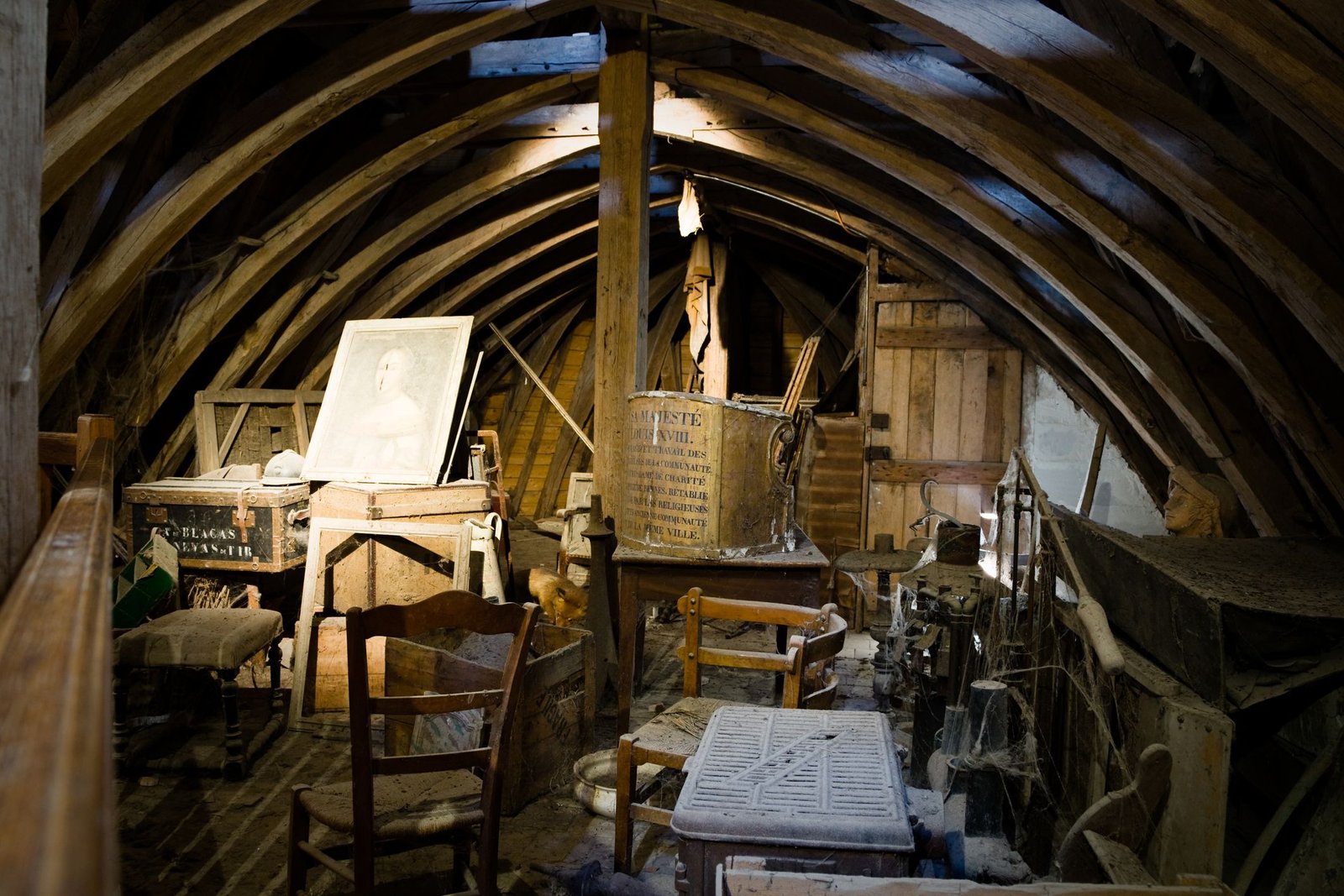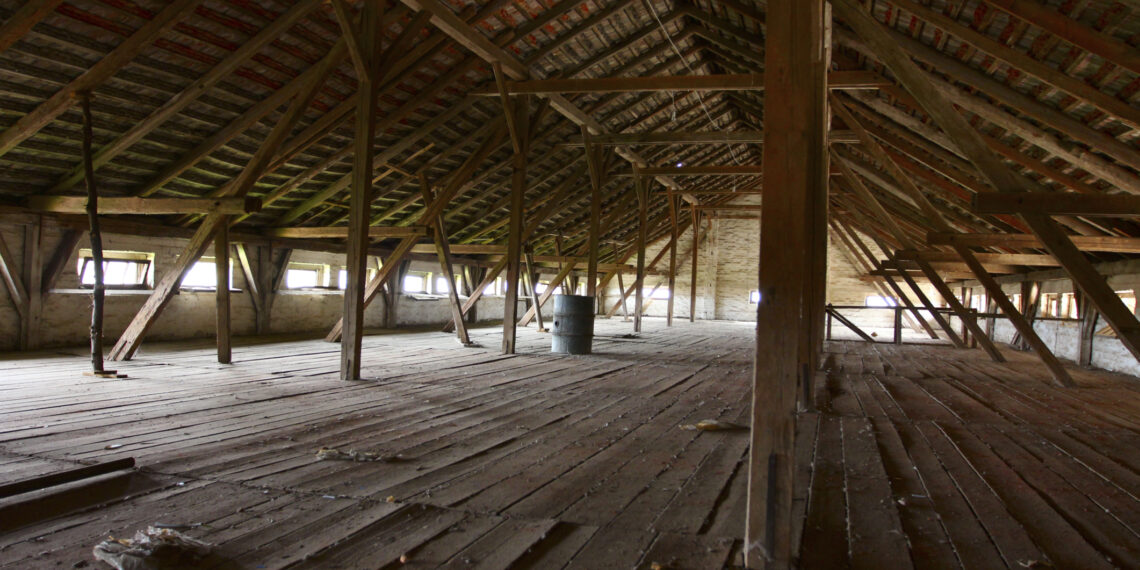Did you know your attic can be a breeding ground for potential hazards? While it may seem like the perfect storage space, there are certain items that should never find their way into this often neglected area of our homes.
From extreme temperatures to moisture and pests, the attic can wreak havoc on sensitive belongings. In this blog post, we will explore the things you shouldn’t store in the attic and delve into why these items pose risks when confined to this space.
So before you head up those creaky stairs with another box in hand, let’s uncover some surprising facts about what not to store in your attic.
Why? What Could Happen?
While it may appear as an attractive storage option, it is crucial to be discerning about what items are suitable for this space. In general, the best is to reserve the it for non-perishable items that are not affected by temperature fluctuations or moisture.
Valuable possessions, sentimental items, perishable goods, and anything sensitive to humidity should be stored in other areas of your home that can provide a more reliable and consistent environment. By doing so, you will not only safeguard your belongings but also ensure that they remain in excellent condition for years to come.
What Things Should Never Be Stored in an Attic?
When it comes to storing belongings in an attic, it might be tempting to use this space as a catch-all for items that don’t quite fit anywhere else in your home. However, there are certain things that should never find their way into it. Why, you may ask?
Well, although it provide extra storage space, they are not always the ideal environment for every possession. Let’s explore the reasons and potential consequences of storing certain items up in it. Many people commonly tend to use their attic as an extra storage space, but there are actually certain items that should never be stored there for various reasons, which can include:
Perishable or Food Items

Perishable items should never be stored in an attic due to the extreme temperature fluctuations that commonly occur in these spaces. Attics are notorious for transforming into scorching ovens during the summer and freezing cold chambers in the winter.
These fluctuations can wreak havoc on anything that has a limited lifespan, such as food supplies, wine collections, or even certain types of medications. High temperatures can cause food to spoil more rapidly while freezing temperatures can alter the composition and effectiveness of medications. Therefore, it is best to reserve attic storage for non-perishable items only.
Attics are spaces that typically experience extreme temperature fluctuations, especially in areas with harsh weather conditions. Storing food items there can spoil them, attract pests, and produce unpleasant smells. Besides that, food storage in the attic can potentially contaminate the living areas below with harmful bacteria and unpleasant odours that the food will start to give off.
Valuables Items
Another category of possessions that should avoid the attic is anything sensitive to moisture or humidity. Attics tend to be prone to moisture buildup, especially in older houses or those lacking proper insulation and ventilation. This excess moisture can lead to the growth of mould and mildew, which can damage or destroy fabrics, paper documents, artwork, and electronics.
These items require a dry and controlled environment to maintain their integrity. Instead, consider storing them in areas of your home that are less susceptible to moisture, such as a closet on the main floor.
Flammable Materials
Storing flammable items, such as gasoline, propane tanks, paint thinners, and other hazardous chemicals, in the attic can be extremely dangerous. Attics aren’t typically well-ventilated and can become very hot, creating a fire hazard and increasing the risk of explosions.
Electronics and Appliances
Extreme temperatures in the attic can damage electronic devices and appliances and the heat during the warmer seasons can cause circuitry to malfunction, while cold temperatures can lead to condensation, which can corrode sensitive components.
Anything Sensitive to Humidity
Because attics are susceptible to temperature and humidity changes, sensitive items, such as electronics (like we already mentioned), family heirlooms, photographs, and important documents, can get damaged.
Moisture and extreme temperatures can lead to warping, discolouration, and irreversible damage, so it’s highly advisable to find other storage solutions for them.
Pressurised Containers
Items, such as aerosol cans or fire extinguishers, shouldn’t be stored in the attic because of the potential for pressure buildup in high temperatures. This pressure increase can lead to the cans rupturing or exploding, posing a significant safety risk.
Living Creatures and Plants

Not a lot of people have plants and pets in their attic, and for a good reason – it’s no place for a living being. Avoid leaving plants, pets, or any living other creatures in the attic because the lack of suitable living conditions, ventilation, and temperature control can be harmful or even fatal for them.
Cleaning Products
Similar to other flammable materials, home cleaning and maintenance products shouldn’t be stored in the attic even if they’re sealed well. They not only pose a fire hazard but also emit gases continuously, which can make their way into the living areas unnoticed through, for example, the HVAC air ducts.
Leather Items
Items that are made of or upholstered with leather shouldn’t ideally be stored in the attic because the temperature and humidity fluctuations can ruin the fabric and make it develop mould or dry out and crack. This will often be impossible to repair.
Natural Fibres
Anything made from natural fibres, such as wool, silk and linen, shouldn’t be stored in the attic because this type of fabric is very attractive to pests like rats, moths and carpet beetles. Besides that, wool, in particular, rots very quickly if it sits in a damp environment for too long.
Candles and Wax Objects
If your attic experiences consistently high temperatures, the candles and other types of wax objects will melt into an unusable lump. Instead, these objects should be stored in a more temperature-controlled space so they’ll last for longer.
Paper and Cardboard Items
If you have paper documents, books or cardboard boxes, find another space to store them, as the humidity in the attic can easily make them wet and introduce mould.
Final Thoughts
It’s crucial to be mindful of what you store in your attic. It may seem like the perfect storage space, but certain items can pose serious risks and damage over time. Remember to avoid storing perishable or flammable materials in the attic, as well as any valuable or sentimental items that could be damaged by extreme temperatures and humidity.
Instead, consider alternative storage options such as a basement or climate-controlled facility. By taking these precautions, you can ensure the safety of your belongings and preserve them for years to come. So next time you’re tempted to stash away those old family photo albums or unused paint cans in the attic, think twice and make a more informed decision. Your cherished possessions deserve better than being subjected to potential harm lurking above our heads!









